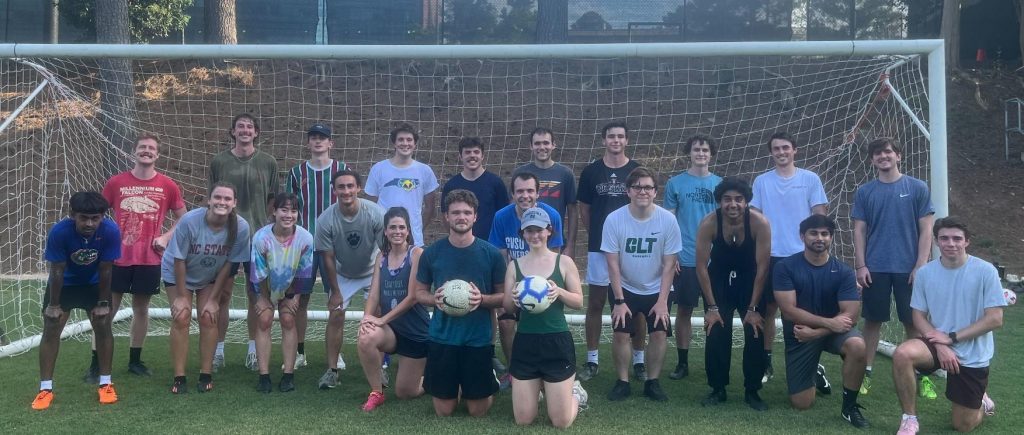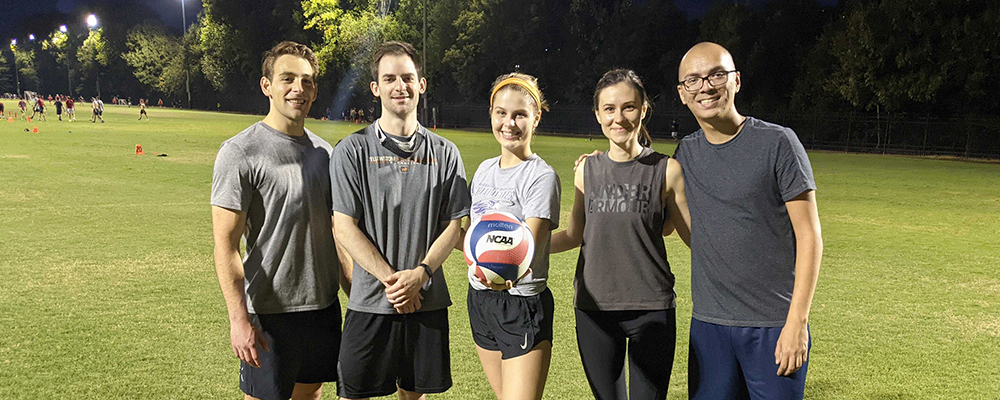Picture this: you’ve worked hard, graduated from undergrad with honors, and maybe even gained some valuable, real-world experience. Then, you get into one of the top analytics programs in the country—let’s say the Institute for Advanced Analytics at NC State. You’re thrilled and so proud of yourself… but then something slowly begins to creep in: self-doubt. You start wondering, “Do I really deserve to be here? Or did I just get lucky?”
If this sounds familiar, you could be dealing with imposter syndrome—a struggle that many of us face, especially in challenging academic settings. In fact, studies show that 56% to 82% of students in higher education grapple with imposter syndrome at some point. So, if you’re a current student in the program, a prospective candidate, or anyone navigating similar territory, know this: you are never alone. I, too, have struggled with it significantly this year since joining the IAA. Thus, in this blog, I will cover what imposter syndrome is, why it happens, and several ways to overcome it.
Imposter syndrome isn’t just a buzzword—it’s the real deal. It’s that nagging feeling that your achievements aren’t deserved, or that you’re somehow not good enough despite clear evidence to the contrary. Imposter syndrome can completely undermine your confidence and hurt your academic performance if you let it.
So why does this happen…especially in grad school? One major factor is that entering a new academic environment with heightened expectations can disrupt your sense of security. Add to that the infamous “comparison trap”—looking at what your classmates are doing and feeling like you don’t measure up. I’ve personally struggled with this the most since starting at the IAA. Toss in some cognitive distortions (you know, that all-or-nothing mindset where any small setback feels like a disaster), and it’s easy to see why imposter syndrome hits so hard.
If left unchecked, imposter syndrome can lead to various detrimental habits. Some people go full-on perfectionist mode, setting sky-high expectations and over-preparing for everything, which leads to constant stress. This cycle of anxiety chips away at their confidence and performance over time. Others might go the opposite route, avoiding tasks because they’re scared of failing, which means procrastination or passing up on opportunities altogether; it’s a recipe for stalling personal growth.
But here’s the good news: imposter syndrome can be managed. It starts with recognizing those self-doubts and realizing you’re not the only one feeling this way. Chatting with friends, classmates, or mentors can help ground you and offer some much-needed perspective. I still remember the first day I met my summer practicum team. Fast forward a couple weeks, and we were already leaning on one another and being supportive through every challenge. That’s when it suddenly clicked—we’re all in this together.

Another game-changer is adopting a growth mindset. Avoid viewing mistakes as failures and instead take them as opportunities to learn and grow. And don’t forget to celebrate your wins, no matter how small! Each success is proof that you’re moving forward.
It is also essential to balance your academic life with other activities like working out, picking up relaxing hobbies, or hanging out with loved ones. Lots of students partake in different activities each week like soccer, pickleball, yoga, Bachelorette watch-parties, trivia nights, etc. Students also coordinate fun, stress-reducing events like social potlucks and therapy dog hang outs. All of these activities aid in keeping imposter syndrome at bay by making the journey more enjoyable and reminding us that we’re more than just students.


Imposter syndrome may be common and unavoidable, but it doesn’t have to define your experience. By understanding where it comes from and using strategies to manage it effectively, you can start to shift your mindset. It’s about owning your success and realizing it’s not luck—you’ve earned your place and deserve to be where you are. So next time those doubts creep in, remember: you belong here, and your journey is worth celebrating.
Columnist: Sarah Arnold
